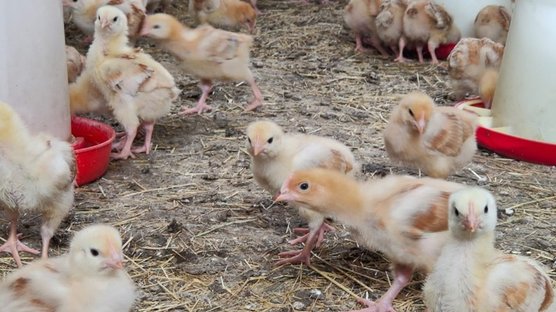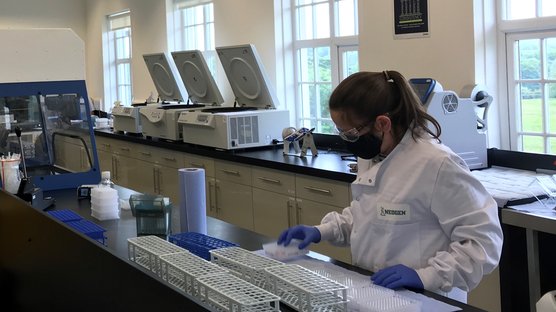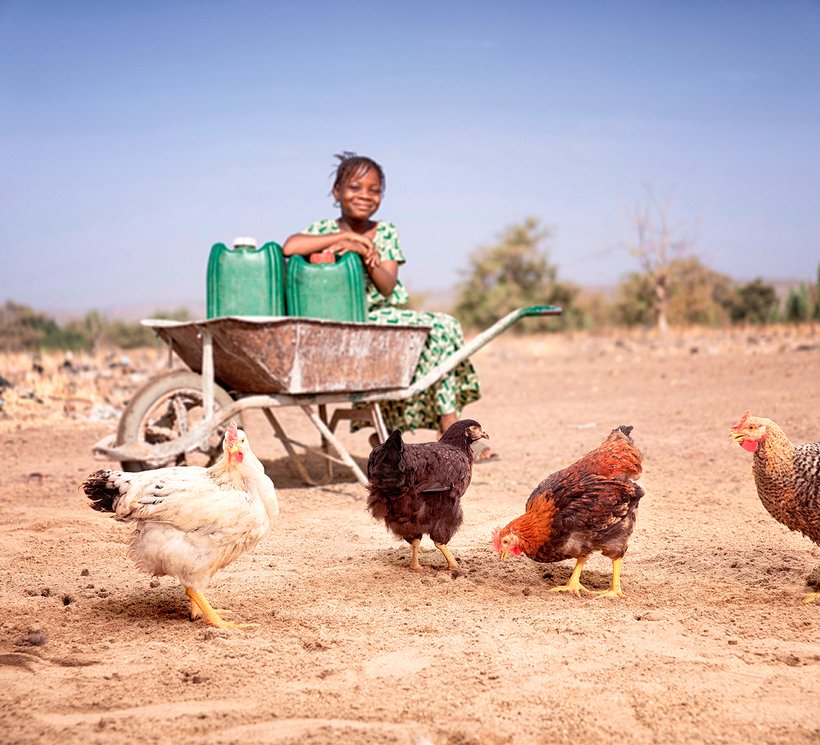
Published on Dec. 12, 2019
The SAPPSA
Rural poultry farming plays a vital role in driving socio-economic development across Africa. It strengthens food security and enhances nutrition for rural families by providing affordable, high-quality protein through eggs and meat, an essential resource for low-income households. Access to robust and high-quality poultry genetics is fundamental, it serves as the essential starting point for sustainable livestock transformation. As world’s major players in the animal breeding industry, we are committed to delivering sustainable genetic solutions that contribute to addressing the global food challenge.
What is SAPPSA?
SAPPSA stands for Sustainable Access to Poultry Parent Stock in Africa, a five-year initiative launched in 2018 to provide rural African farmers with access to improved poultry genetics. The project focused on developing tailored breeds, aka “Dual-Purpose” breed, that thrive under local conditions and environmental challenges. Co-funded by the Gates Foundation, its objectives were to:
- Ensure reliable access to poultry parent stock
- Enhance dual-purpose breeds for smallholder farmers
- Expand APMI initiatives within and across countries
Building on the success of its first phase (2018–2023), the new SAPPSA program (2024–2029), now standing for Securing Affordable Poultry Parent Stock in Africa, aims to further strengthen the rural poultry value chain. It leverages previous achievements by introducing genetic innovations, enhancing supply chain resilience, and driving data-based performance improvements at the local level.
The African Rural Poultry Situation: focus on extensive and small-scale poultry farming
The rural poultry market in most Sub-Saharan African countries remains largely overlooked and underdeveloped despite poultry farming being an important source of income for poor and rural communities. The smallholder farmers represent small and dispersed transactions, and have limited access to quality inputs and infrastructure. They also face significant climate and environmental challenges. In addition, they only have access to local indigenous chickens, characterized by low productivity and high mortality rates. It further restricts the potential of rural poultry farming to contribute to food security and economic development.
Therefore, the SAPPSA was initiated to secure the supply of good quality parent stock genetics to African smallholder farmers. Parent stock refers to the breeders that produce the end-product birds (commercial birds) that go to the smallholder farmers. SAPPSA draws its strength from Hendrix Genetics as one of the world’s leading animal breeding companies. By studying and measuring the traits that will result in the best performing bird in Africa, the SASSO bird was chosen for this project for their nature as dual-purpose chickens, slow growing birds which have good egg and meat productivity, are low cost, and more disease resistant.
How it works: the right genetics for the right production & distribution model
The way in which SAPPSA works is that it builds upon existing and established projects such as the “African Poultry Multiplication Initiative” or APMI. This is a model that is led by the World Poultry Foundation and supported by the Gates Foundation. It operates on the simple basis of sustainable development by securing the chain between hatcheries, mother units, and smallholder farmers. In this model, hatcheries are responsible for hatching day-old chicks and giving vaccinations, mother units are responsible for raising the chicks to teen chickens, and smallholder farmers complete the chain by raising the teen chickens to adulthood. Alongside this, it also helps with supplying the local African members with education on best practices for nutrition, housing, and poultry biosecurity. This production and distribution model is sustainable, scalable and profitable for all actors in the value chain.
A key component of SAPPSA is the ongoing improvement of poultry genetics to address the challenges faced by smallholder farmers. Hendrix Genetics leads this effort by driving genetic innovation to develop resilient, dual-purpose chicken breeds suited for rural and low-input systems in Africa through its Recurrent Test (RT) model. This approach plays a critical role in enhancing the resilience, robustness, and performance of these breeds, improving both egg production and growth. Genetic advancements at the top of the value chain translate into tangible economic benefits for all actors in the dual-purpose poultry sector. This continuous commitment has been recognized by the FAO during the Global Technical Recognition Ceremony under the category of Sustainable Livestock Transformation, One Health, Animal Health, and Reference Centers.
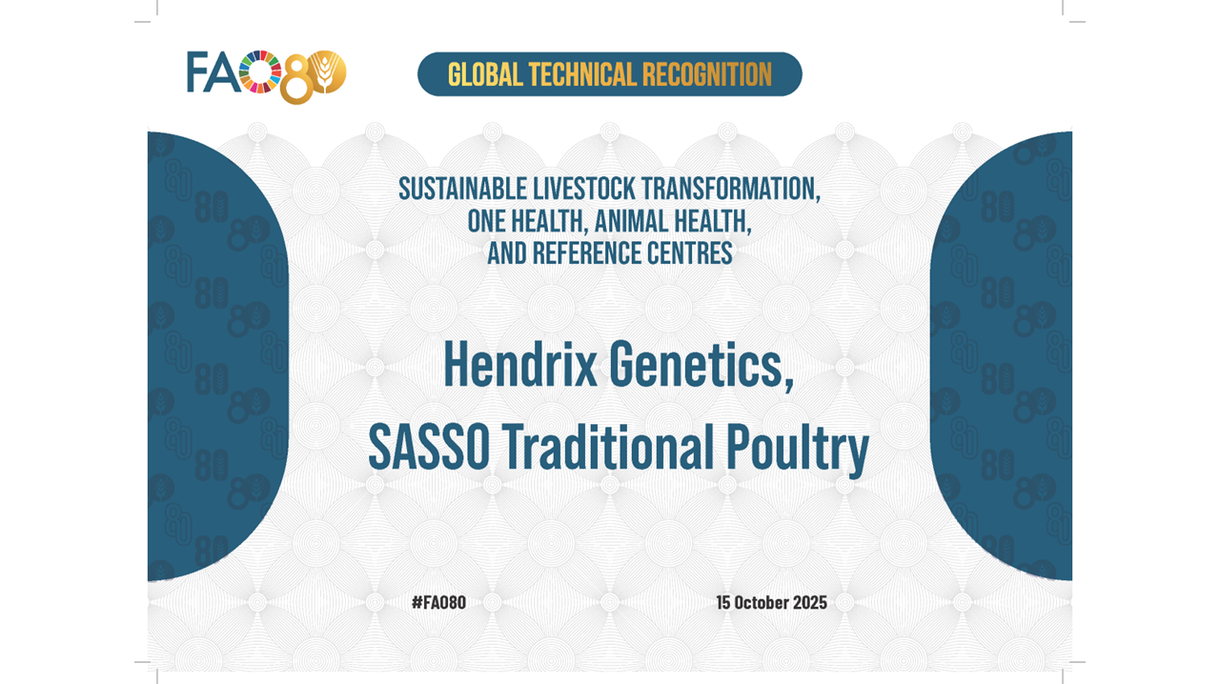

With the SAPPSA project, we want to make sure smallholder farmers in Sub-Saharan Africa have more and more access to these dual-purpose chickens and that they have the right breed for their needs.
A better future
We are proud to be leading a project that will create a positive impact on the lives of millions of people. By working together, we can help achieve a better and more sustainable future for us all. The project has the potential to transform the lives of many smallholder farmers; contributing towards a solution for world hunger by empowering farmers to build a better life and secure their income with tailored breeds. By doing so, SAPPSA also helps to support 3 of the 17 Sustainable Development Goals drawn up by the United Nations:
- Increasing income of rural households with highly productive and economical chickens, reducing the effects of poverty.
- Feeding the growing population with nutritious protein.
- Gender empowerment measures to establish poultry enterprises owned and operated by women.
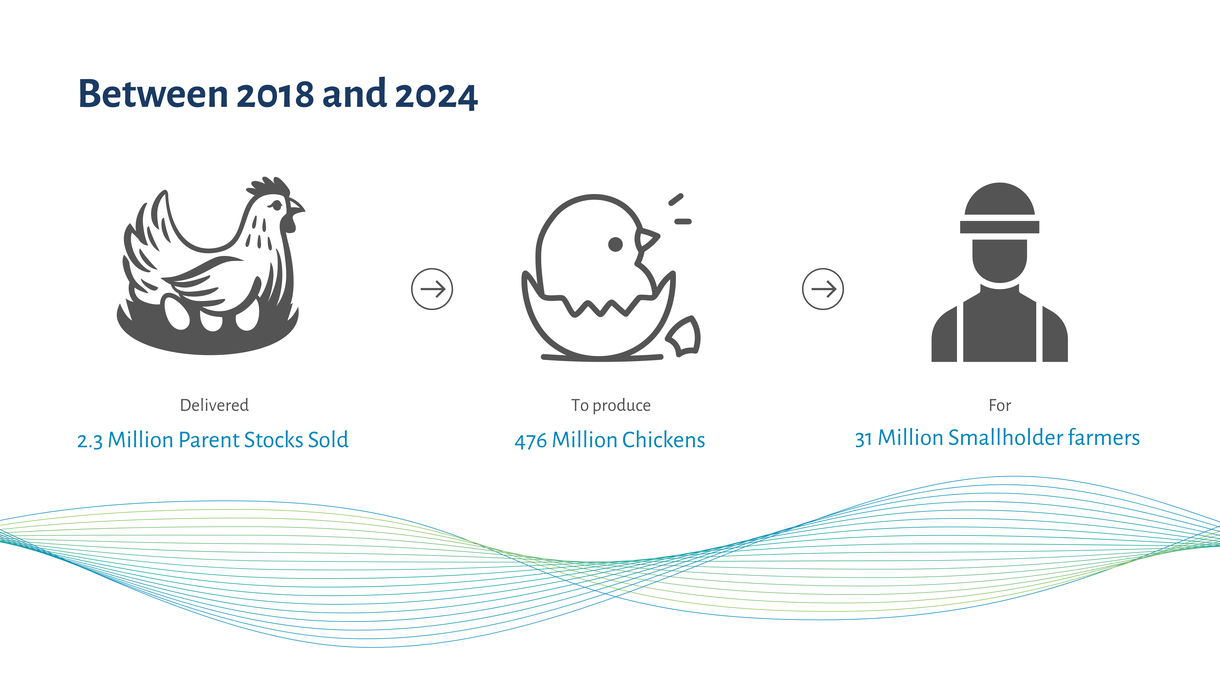
Our stories
One of the ways in which we realize our commitment to help solve the global food challenge is through developing local sustainability initiatives. We are proud to be able to lead SAPPSA, a project funded the Gates Foundation, and collaborate with many other stakeholders to bring prosperity to African smallholder farmers through superior poultry breeds.


